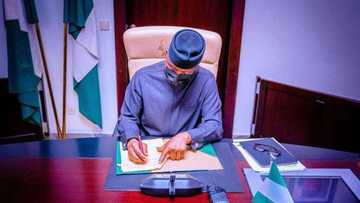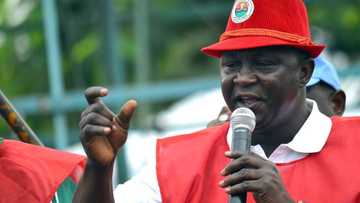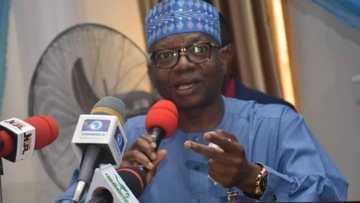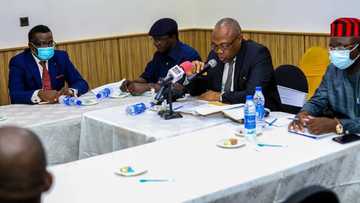NEDC to Launch 10-Year Master Plan for Northeast Region, Meets Stakeholders
- The North-East Development Commission (NEDC) is developing a regional stabilization and development master plan for the northeast region
- The NEDC Act 2017 mandates the commission to develop a master plan that will guide the commission's functions, programmes, projects, and schemes
- To have a comprehensive master plan, the NEDC met with all stakeholders at an engagement forum in Abuja
PAY ATTENTION: Join Legit.ng Telegram channel! Never miss important updates!
FCT, Abuja - The North-East Development Commission (NEDC) has commenced the process of developing a regional stabilization and development master plan for the northeast region that has been affected by the Boko Haram insurgency.
To have a comprehensive master plan with the buy-in of all relevant stakeholders, the NEDC met organised an engagement forum in Abuja on Wednesday, June 14 attended by a Legit.ng reporter.
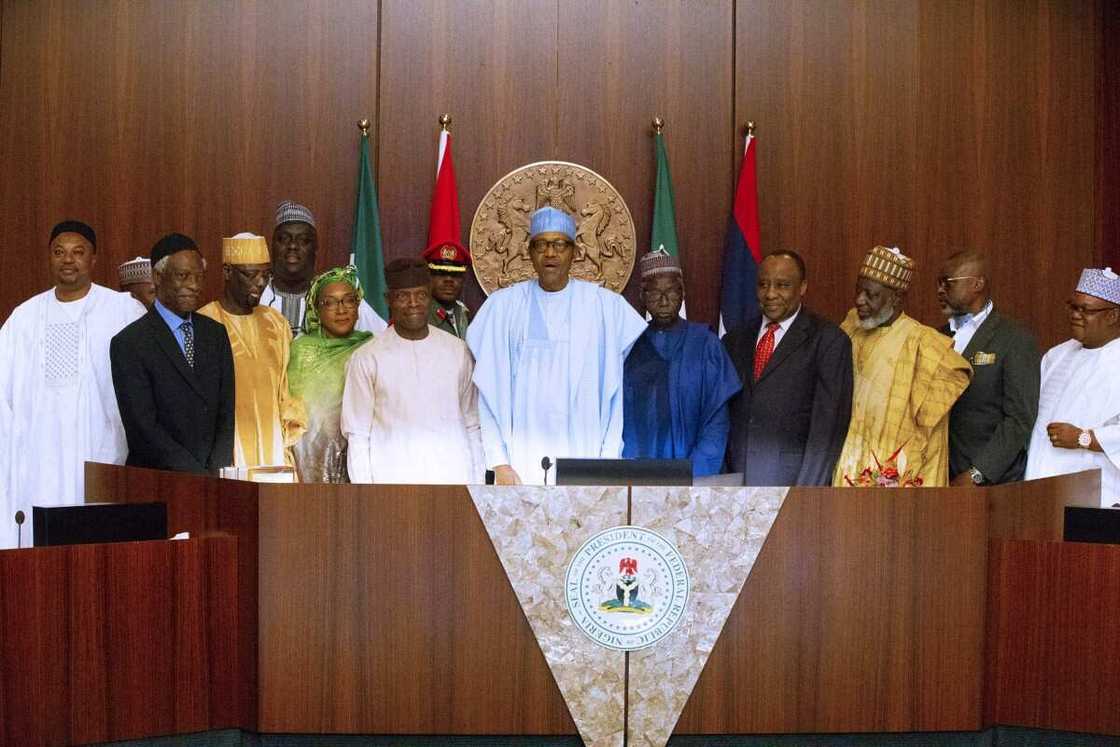
Source: Facebook
PAY ATTENTION: Install our latest app for Android, read best news on Nigeria’s #1 news app
Working towards the North-East Stabilization and Development Master Plan
The meeting among other things focused on the synergy between the NEDC and Humanitarian, Development, and Peacebuilding actors in the northeast region.
Participants were also brought up to speed with the North-East Stabilization and Development Master Plan during a presentation by Dr. Kassim Gidado; Lead, Master Plan Segment, and Dr. Danjuma Mahmud; Lead, Baseline Studies Segment.
There was also an interactive session on support to the northeast schemes, programmes, and projects by participants.
Speaking to journalists on the sidelines of the event, the managing director of the NEDC, Mohammed Alkali said:
“For us to have an understanding, we need to have a very robust master plan with all our stakeholders. We are talking to all stakeholders involved in humanitarian activities. We gave them buy-in and they will give us their input based on their own knowledge.
“At the end of the day, we have a plan that is useful for everybody. Because our role as NEDC is to coordinate all the activities in the northeast.
“We are also going to engage other stakeholders like the legislators, the governors, and other political officeholders. They will introduce a plan which will be acceptable to all and be implemented.”
Asked if it is possible to streamline humanitarian actors to have coordination during the process, Alkali said:
“With the master plan, all this era of duplication will be erased, so that all activities will be aligned in the master plan.
“All the state governments have their own master plan and development plan, at the end of the day, we will harmonise it all and have one.
“It is a comprehensive plan that will cover almost all aspects of human endeavour like agriculture, education, health e.t.c.”
On whether ten years is enough to implement the plan, the NEDC boss said:
“You plan and forecast first. You start with the short term, mid-term, and then long-term. So, if there is a need to elongate the master plan, it could be revised. It's not going to be a static document. But, I am sure, 10 years is enough.
“For everything we do, there is monitoring and evaluation so that if there is anything to address, it will be addressed before a challenge becomes a problem. So, it is going to be monitored gradually and we are going to have a very robust implementation programme enshrined in the master plan.”
More insights into the Master Plan
On his part, Professor Bobboi Umaru, chairman of the masterplan committee said:
“We have up to 11 sectors cutting across humanitarian, recovery, peacebuilding, and sustainable development. So, it is very holistic and comprehensive.
“It's going to address all the issues not only in the crisis-ridden states of Borno, Adamawa, and Yobe but also in the whole of the region. So, the other three states are going to be adequately taken care of by the plan.
“We cannot wait until total peace is achieved. Each area will be addressed by the plan looking at the prevailing situation. That means you have to have risk analysis on where to cite projects.”
Recall that in 2020, a civil society organisation, Good Governance and Transparency Coalition, condemned the media attacks on the minister of humanitarian affairs and disaster management Hajiya Sadiya Farouq.
The organisation said the attacks and allegations of fraud against the minister and the managing director of the NEDC are false.
According to the organisation, the allegations were planted by detractors to cause distractions.
Similarly, Adamu Balarabe, an anti-corruption crusader based in Yola, Adamawa state, said the allegations are false.
Balarabe dismissed the reports as arrant nonsense and a joke.
He said the allegations were not only spurious but a figment of the imagination of its promoters.
Source: Legit.ng

